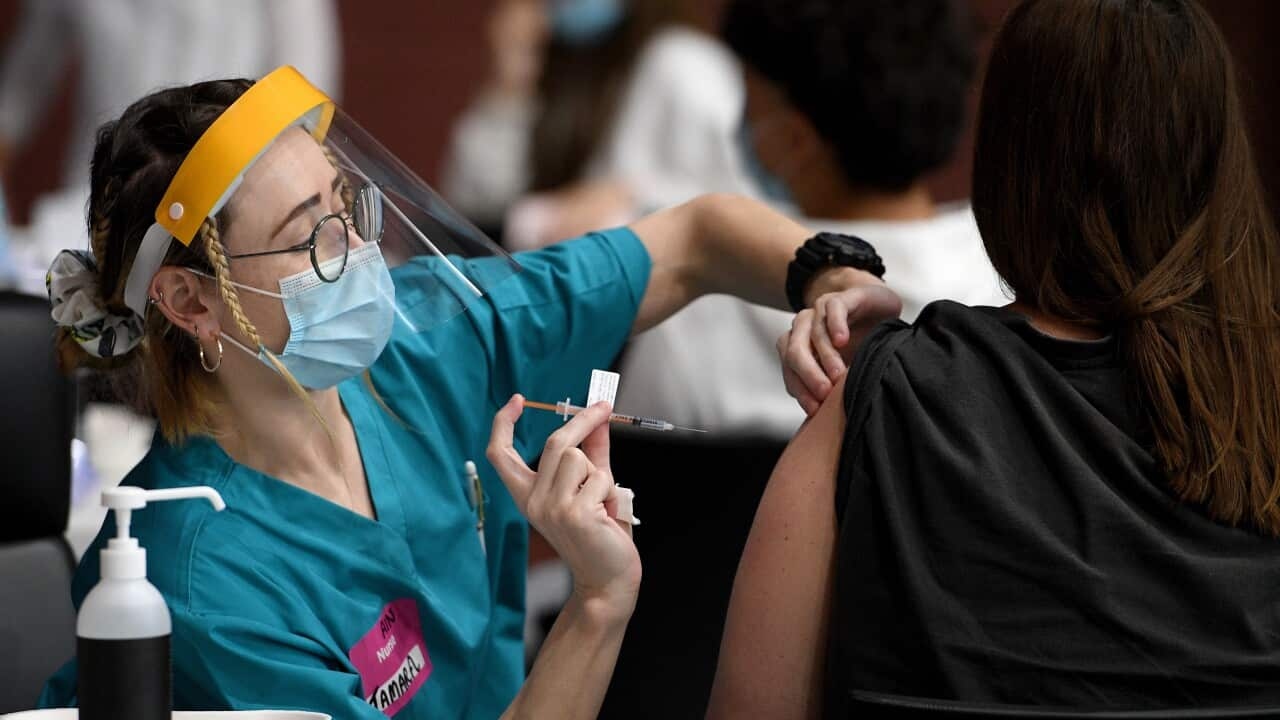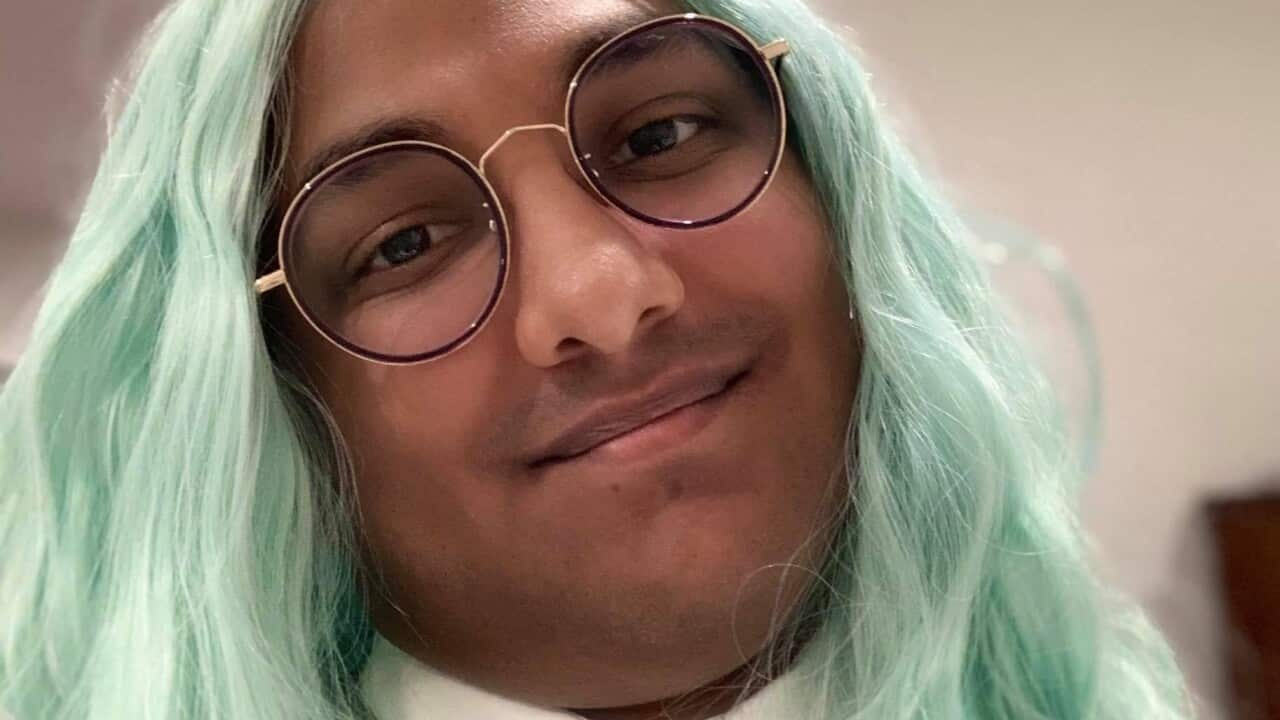More people are now eligible to receive a fourth COVID-19 vaccine dose, following the latest advice from the country's chief immunisation group.
The Australian Technical Advisory Group on Immunisation has expanded the eligibility for the winter booster dose to include people with health conditions or a disability, following its latest meeting.
The expanded advice is expected to allow more than 1.5 million additional people to receive the fourth vaccine dose, or second booster.
Previously, the fourth dose has only been available to those 65 and over, those in aged or disability care, severely immunocompromised people or Indigenous people aged over 50.
Interim Health Minister Katy Gallagher said it was critical as many people received the fourth dose as possible.
"The idea behind expanding the criteria really has been to ensure that people who are at greatest risk of severe infection ... are protected," she told reporters in Canberra on Wednesday.
The advice comes ahead of a predicted surge in COVID-19 cases across the country during winter, .
While the eligibility has expanded for the second booster, a fourth dose has not yet been recommended for the whole population.
"The reason why it has not been expanded more across the general population is based on evidence," Ms Gallagher said.
"We have accepted the ATAGI advice in full, but the benefits of having a fourth dose for everybody are not ATAGI's view at the moment."
"It is just that category of people who have underlying health conditions and people who have a disability."
It comes as Australia recorded another 41 COVID-19-related deaths and more than 46,000 new virus cases on Wednesday.
Victoria reported 17 new deaths on Wednesday, NSW 11, Queensland 10, Western Australia two, and South Australia one.
Some 12,419 new COVID-19 infections have been detected in WA's latest reporting period, 13,023 in Victoria, 8,970 in NSW, 5,584 in Queensland, 3,975 in SA, 934 in the ACT, 899 in Tasmania, and 289 in the Northern Territory.
There are 1,209 people with the virus in NSW hospitals, 567 in Victoria, 426 in Queensland, 301 in WA, 236 in SA, 88 in the ACT, 51 in Tasmania, and 11 in the NT.
Thirty-seven COVID-19 patients in Victoria are in intensive care (ICU), 35 in NSW, 15 in Queensland, 10 in SA, seven in WA, three in the ACT, two in Tasmania, and one each in the ACT and NT.
Mental health of gender diverse youth impacted by COVID-19 isolation
Feelings of isolation and little social interaction during the COVID-19 pandemic resulted in a rise in mental health issues among young Australians.

Young people wear face masks in Pitt St Mall, following 108 days of lockdown in Sydney, 11 October 2021. Source: AAP / BIANCA DE MARCHI/AAPIMAGE
The majority of young people reported the top three areas of their life most negatively impacted by the pandemic were participation in activities, education and mental health.
Mission Australia's annual survey of 20,000 Australians aged 15 to 19 found that of the more than 3,000 young people who rated their mental health and wellbeing as poor, more than three quarters (76.5 per cent) indicated the pandemic had a negative impact.
The survey revealed that gender diverse people experienced more negative impacts across almost all domains, and were twice as likely as males to report how the pandemic negatively impacted their lives.
Students reported greater negative impact on mental health when education was negatively impacted by COVID-19.
Those living in Victoria and NSW, where lockdowns lasted longest, were most impacted.
Kate Filia, senior research fellow at youth mental health group Orygen, says the 2021 Youth Survey was collected during the second year of the pandemic, during the Delta wave when lockdowns were affecting young people to different extents across the country.

Dr Kate Filia, senior research fellow at youth mental health group Orygen. Credit: Orygen
"For those who reported more areas of their lives adversely impacted by COVID-19, a greater severity of psychological distress was experienced."
Mission Australia's Marion Bennett says the partnership between the charity group and Orygen will help advocacy for greater supports for young people whose mental health and wellbeing are affected by the pandemic.
"We need to increase access to mental health services, improve mental health screening and supports offered through schools and workplaces," she said.
Readers seeking support with mental health can contact Beyond Blue on 1300 22 4636. More information is available at . supports people from culturally and linguistically diverse backgrounds. Resources for young Aboriginal and Torres Strait Islanders can be found at .
LGBTIQ+ Australians seeking support with mental health can contact QLife on 1800 184 527 or visit . also has a list of support services.
Intersex Australians seeking support can visit Intersex Peer Support Australia at isupport.org.au.












